News & Media
Unisa Innovation Festival 2025 celebrates the transformative power of ideas
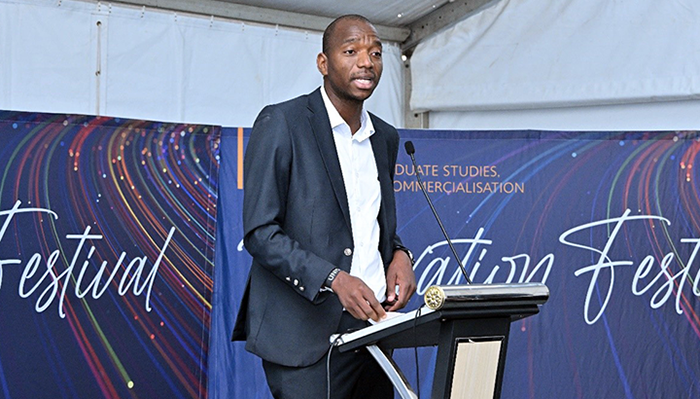
Dr Motlokwe Thobejane
The much-anticipated Unisa Innovation Festival 2025, themed Proudly African, Globally Relevant, kicked off on 18 November 2025 at the university’s Science Campus in Florida.
The objectives of the Unisa Innovation Festival are to raise awareness of innovation, commercialisation and technology transfer opportunities, increase commercialisation opportunities, showcase successful innovation projects, and attract capital investment and partnerships through the university’s Directorate of Innovation, Technology Transfer and Commercialisation.
Unisa champions applied research
In his opening address, Dr Motlokwe Thobejane, Executive Director of ICT Systems and Infrastructure at Unisa, said that the university has developed its own innovative identity and is a major driver of applied research, knowledge transfer and societal influence.
Continuing, Thobejane stated that the Unisa Innovation Festival has become a vital component of the university’s innovation ecosystem. He further emphasised that innovation is central to the work performed at the institution and is embedded in its DNA.
In conclusion, Thobejane said that Unisa, guided by its ten catalytic niche areas, has the strength and potential to drive meaningful change.
Entrepreneurial culture and strategic projects
Professor Thembela Hillie of the College of Science, Engineering and Technology (CSET) remarked that universities must be intentional about what is innovated in laboratories, through balancing each innovation with what is required in the market. To be impactful, a university must have an entrepreneurial culture to effectively position the products it innovates in the market.
Professor Salerwe Mosebi of the College of Agriculture and Environmental Sciences (CAES) gave an overview of strategic projects in the college that focus on six of the university’s catalytic niche areas: Marine studies, Aviation and Aeronautical studies, Energy studies, Fourth industrial revolution and digitalisation, Health/Pharmaceutical studies, and Student support and co-curricular activities.
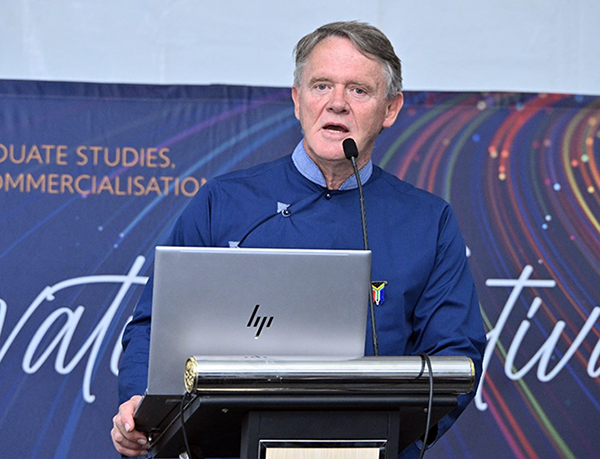
Prof Ben Anderson
The human interface remains key
Delivering the keynote address, Professor Ben Anderson, co-founder and chief executive officer of the DaVinci Institute, said that the human interface should be used to create a full embodiment of what innovation is, rather than merely looking at the frames of natural and related sciences. He continued: “Unisa is a critical player in the broader ecosystem of innovation management in South Africa, and I hope that it can expand its interest to include the human interface.
Anderson discussed how theory and practice can contribute to creating an agile, aligned, and engaged future workforce. He emphasised that only connecting linear dots does not really lead to anything. “We need to co-create new understandings and stretch our minds beyond the limitations of societal rules and norms,” he said.
Anderson remarked that using the androrithm of the human interface will create new structure, new pictures of the world, and new interpretations of reality.
“This,” he continued, “may only happen when one operates within a construct of self which gives self-direction, expressed in three levels: self-mastery, sense of purpose, and autonomous decision making.”
Anderson went on to explain the Cynefin framework, which categorises order, unorder, and disorder, along with their imbalances that can lead to a non-innovative reality. “Individuals must juggle this imbalance to minimise disorder for innovation, and make a contribution to society,” he said.
He added that dependency on collaborations is a challenge because the sponsor will control the things they fund. “But,” he continued, “the cooperative world forms a knowledge network, with everybody having the intention to contribute, and everybody being self-directed with the notion of mastery, purpose and autonomy, which is reflected in the interaction.”
“Innovators should create a meta-awareness that requires the brain to reflect and conceptualise for innovation to take place,” said Anderson. He concluded by encouraging innovators to stop talking about innovation and instead be innovators.
Food for thought
Closing the proceedings, Professor Usisipho Feleni from CSET said that all the speakers had raised issues to reflect on when securing funding and collaborating, and that if these are heeded, the innovation project at Unisa will go far.
* By Tshidiso Madiseng, Department of Institutional Advancement
** Photography by Shooheima Champion, Unisa Multimedia Office
Publish date: 2025-11-20 00:00:00.0


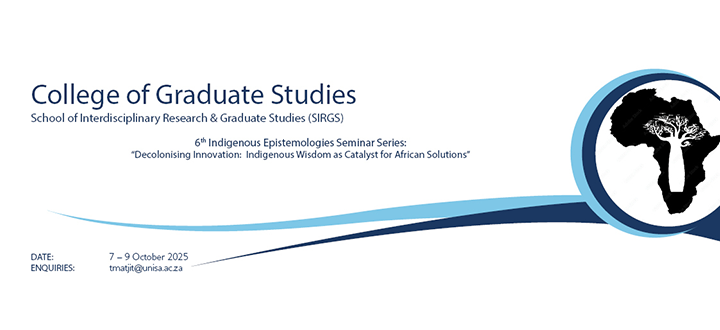 Decolonising innovation: indigenous wisdom as a catalyst for African solutions
Decolonising innovation: indigenous wisdom as a catalyst for African solutions
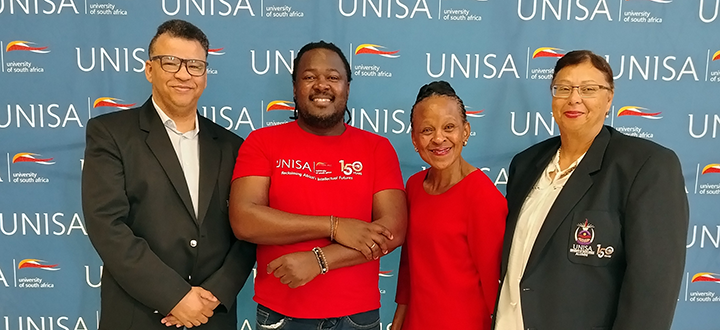 Unisa alumni inspire Elswood Secondary School learners to strive for excellence
Unisa alumni inspire Elswood Secondary School learners to strive for excellence
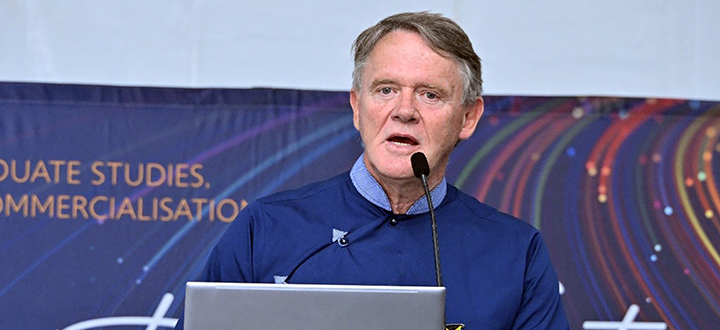 Unisa Innovation Festival 2025 celebrates the transformative power of ideas
Unisa Innovation Festival 2025 celebrates the transformative power of ideas
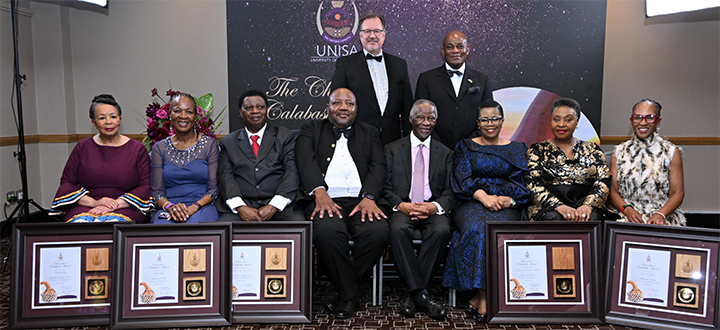 Unisa celebrates excellence and selfless service at prestigious awards ceremony
Unisa celebrates excellence and selfless service at prestigious awards ceremony
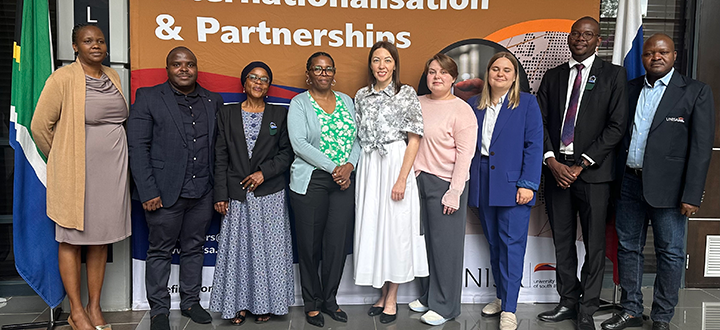 Unisans granted an opportunity to learn Russian
Unisans granted an opportunity to learn Russian